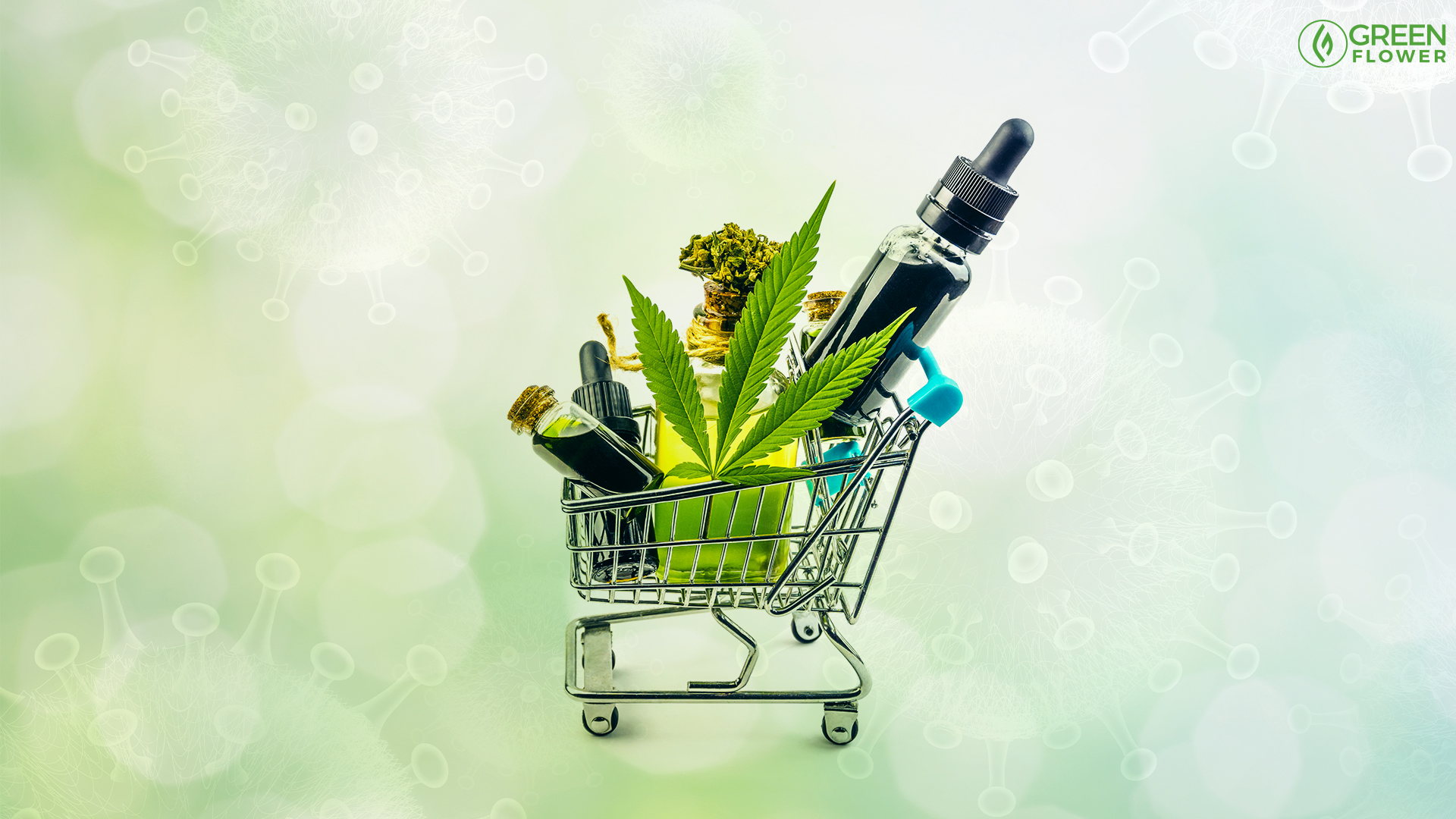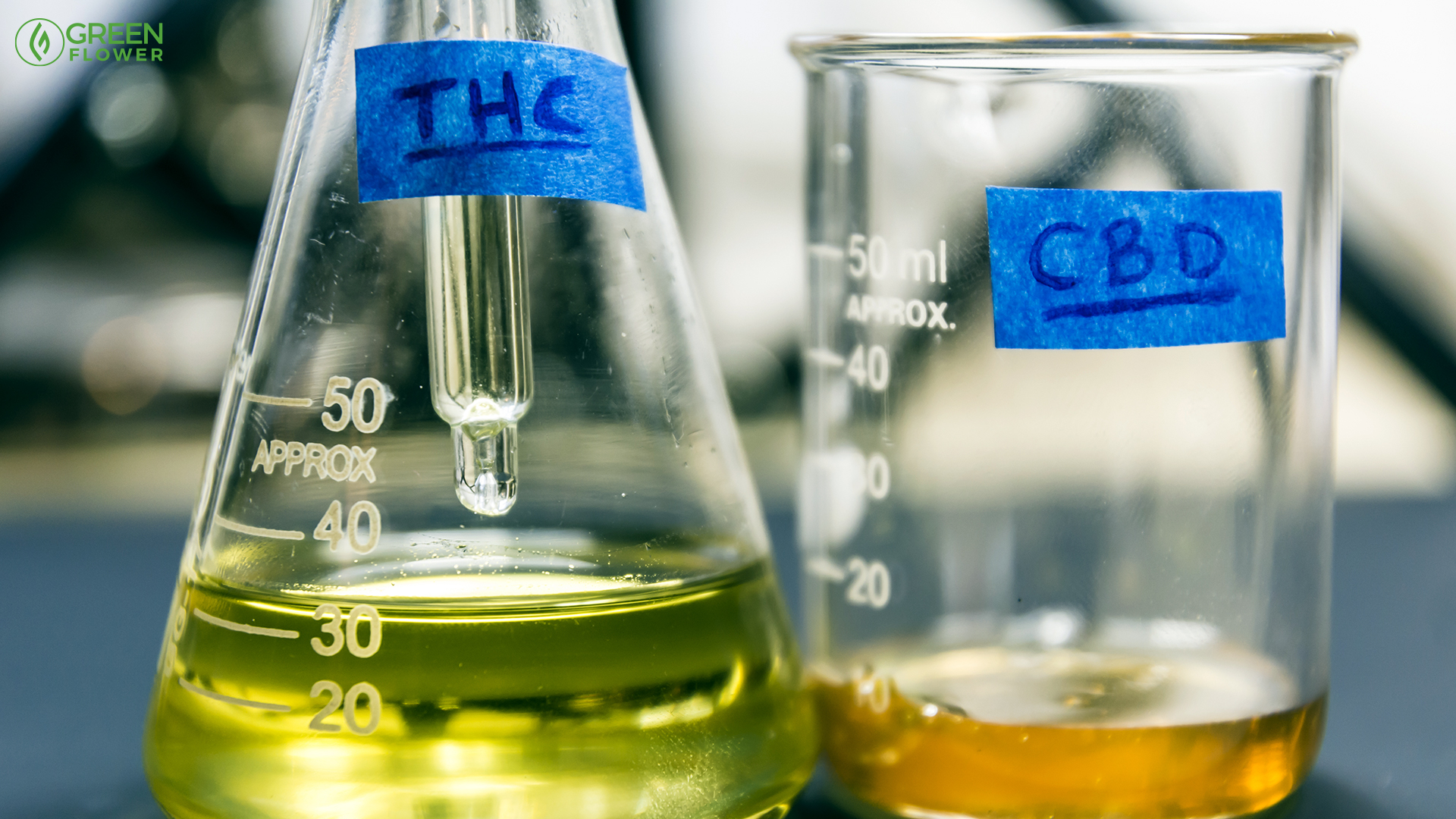Cannabidiol (CBD) has never been so mainstream as it is today. It can be found everywhere from dispensaries to grocery stores, in forms as varied as oils to creams. You may have heard about it from your neighbor, the evening news, or a friend — but perhaps the question remains, what is CBD? Let’s do a deep dive to learn more.
CBD Is A Cannabinoid
CBD is a cannabinoid, one of many present in the cannabis plant.
A cannabinoid is simply a compound naturally found in the cannabis sativa plant. These compounds interact with the cannabinoid receptors found on cells in parts of the central nervous system. Receptors, such as the CB1 and CB2 receptors, are what allow us to feel the effects of cannabinoids — even naturally occurring ones. Yes, that’s right, the body can create its own cannabinoids, known as endocannabinoids. One such endocannabinoid, anandamide, is responsible for the common phenomenon known as runner’s high.
While CBD may not make you feel a runner’s high, it works the same way as anandamide by interacting with our endocannabinoid system. Different cannabinoids produce varying effects when interacting with this system. For example, another cannabinoid you may be familiar with is tetrahydrocannabinol (THC). Both CBD and THC come from the cannabis plant, and can be found in varying degrees in different strains, but unlike THC, CBD is non-psychoactive, and won’t produce the “high” like effect commonly associated with cannabis. Instead, CBD is more well known for other benefits.
How Is CBD Used?
It has exploded into mainstream popularity for a few reasons. The first is that due to its ability to be sourced from the more legally accessible hemp plant, it can be sold more readily than its cannabinoid counterparts. Secondly, many people who are interested in the medicinal properties of cannabis, but do not want to feel high, can still find relief in CBD.
CBD is commonly reported to assist with conditions such as —
- Anxiety disorder
- Neuropathic and inflammatory pain
- Insomnia
- Seizure disorders such as epilepsy and Dravet syndrome
- Nausea
Research is ongoing but looking positive for many conditions, and in conjunction with anecdotal evidence it’s clear why so many get excited about CBD. That said, it’s good to be skeptical about sources that claim it’s a “cure-all,” and patients should feel comfortable consulting their physician for advice and guidance when considering adding cannabis to their regimen.
Additionally, be sure to read the label on products you purchase and check for active ingredients. Unfortunately, in a world where CBD is emerging as a lucrative market, there will be those taking advantage with snake-oil like products. Your CBD product should be sourced from the plant, not industrial hemp stalk or seeds, and ideally provide access to a certificate of analysis with helpful details such as cannabinoid potency, terpene profile, and even test results for pesticides, among other information.
Is CBD Legal?
In the United States, the question of CBD’s legality has no single, simple answer. In 2018 the federal government passed the 2018 farm bill, which at last declassified hemp as a controlled substance. This took the cannabinoid out of the realm of the Drug Enforcement Administration (DEA) and into the hands of the Food and Drug Administration (FDA) to develop new regulations.
So what qualifies as hemp? When it comes to federal law, growers must pay special attention to the amount of THC in their plants.
The government classifies any cannabis with less than 0.3% THC as hemp. Growers, sellers, and buyers who abide by these guidelines are within the legal parameters of the federal government. This was a big game-changer for the industry, and is part of the reason so many of us have seen these products become much more readily available in the last two years.
However, laws still vary state-to-state, and just because it’s legal federally, doesn’t necessarily mean it will be legal on a state level. For example, in Colorado, CBD may not be sold in food or beverage form unless from a licensed dispensary, and in Iowa, CBD is not legally permitted in any form. Therefore, it is highly advisable to look up your own state’s guidelines before purchasing any cannabis product.
 How Should I Take CBD?
How Should I Take CBD?
CBD works in many forms, and the manner of application or consumption method can largely be a case of personal preference or depend on the condition being treated. For example, those with joint inflammation, such as arthritis, may find it beneficial to use an infused cream to directly target the points of pain. While others, say with a seizure disorder, may find CBD oil more effective.
Side effects with CBD tend to be mild, with some studies showing the potential for fatigue, change in weight/appetite, and diarrhea. CBD also has the potential to interact with certain medications or supplements, so make sure to talk with your doctor before adding it to your regimen to avoid contraindications.
Ultimately, the form of CBD you take should be a decision you make based on conversations with your doctor and on what works best for you as an individual. That said, there are many products from which to choose!
Topicals
CBD is perhaps most commonly sold in topical forms. It can be found in creams, lotions, salves, and even lip balms.
Edibles
Another convenient way to take CBD is in the form of edibles. Infused drinks and snacks are available, as well as more highly concentrated ingestible oils or even capsules.
Flower & Concentrate
Although perhaps not the healthiest method, the classic mode of cannabis consumption, smoking, is still an option for those who want to add CBD to their life. Plenty of high-CBD strains exist, and a local dispensary will usually have multiple strains in stock. Alternatively, for those interested in vaping, CBD concentrates are an option as well.
Prescription Medication
In 2018, CBD entered the prescription drug market with FDA-approved Epidiolex. The pharmaceutical-grade version of the cannabinoid is used in the treatment of childhood epilepsy. Reported side effects from the drug are fatigue, sleep disorder, vomiting, and diarrhea.
 Is CBD Better With THC?
Is CBD Better With THC?
When considering what form of cannabis product is right for you, it is also worth considering full spectrum products, which rather than isolating CBD, include certain amounts of THC and other cannabinoids. An example would be the strain CBD Shark, which is notable for its 1:1 ratio of CBD and THC.
Some studies suggest that these full spectrum products work more effectively, with each cannabinoid enhancing the effect of the others. Of course, such full spectrum products will only be available in legal markets and found in recreational and medicinal dispensaries.
ProjectCBD reported on the topic, saying, “…CBD isolates lack critical aromatic terpenes and other cannabinoids, which interact synergistically to enhance CBD’s therapeutic benefits. Single molecule cannabinoids are simply not as versatile or as efficacious as whole plant formulations.”
As for dosage, it is always best to start low, go slow, even with cannabidiol. While higher doses may not risk an unpleasant psychoactive effect the way THC can, it’s still wise to find the smallest possible dose to achieve your desired effect. Unnecessarily large doses still leave the potential for unpleasant side effects, and not only will this leave room for your tolerance to grow, but it will keep your wallet happier as well. Whenever possible, consult with a cannabis informed physician to determine what dose is right for you.
Is CBD Right For You?
CBD is a popular and beneficial cannabinoid that has the potential to offer relief and wellbeing to those seeking the medicinal effects of cannabis without the psychoactive effects of THC, or who would like a more balanced high. It can be found in many forms, and has become more readily available for consumers than ever before. When deciding if this cannabinoid is right for you, consider speaking to a cannabis informed physician, do research on your local state laws, read product labels, and get ready to explore your local market.

